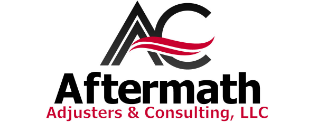You’ve experienced a fire at your home. Your insurance agent should be one of the first people you call, once you know your family is safe. It’s required in your policy, actually. These are some tips on how to communicate with your insurance company after a fire. This is also about what you should share with them.
First Things First
When you communicate with your insurance company after a fire, you can contact your insurance agent directly or via an email which will fulfill the requirement in your policy. There are a number of other duties you are required to do after a fire, such as:
- Making emergency temporary repairs to mitigate further damage
- Documenting damaged personal property
- Other duties spelled out in your policy
It’s important to go over your policy carefully. Familiarize yourself with the claims process. Requesting a certified copy of the policy from your insurance adjuster is the most important step. Your insurance agent, typically, won’t have access to the full policy. A certified copy is the only way to get the complete, and most up-to-date, version.
It’s important to be familiar with your rights, as a policyholder. It is your right to address the insurance company if you feel like you’re being mistreated. Make sure your insurance adjuster is aware of your concern. Speak to the supervising adjuster if it’s not addressed to your satisfaction. You can always hire a public adjuster. They will work on your behalf to solve the issue.
Organization Counts
Being organized is very important when you communicate with your insurance company. Your claim will need to have very detailed documentation of:
- All property damage
- The replacement cost of the property at the time you purchased it
- Photographs of the property
- Detailed descriptions of each item
It can be a very overwhelming process. A public adjuster can help.
The Additional Living Expense
The Additional Living Expense (ALE) coverage in your policy will cover your living expenses when you can’t live in your home. Be sure you keep a detailed record of:
- Everything you spend each day
- Where you spent it
- How it is related to your living expenses
While you might not be able to claim all of your expenses, your insurance can cover a portion of the food and lodging during that time.
It’s also important to remember that you can request an advance on your claim. You will have to keep a close record of:
- How much the insurance company sends you
- What you use the money for
- All your repair, relocation, and rebuilding costs
We have extensive experience, here at Aftermath Adjusters & Consulting, dealing with insurance companies. We know how to communicate with your insurance company to get the best results and ensure policyholders with a claim are treated fairly. Call us today!









